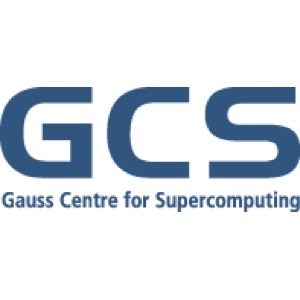 Today the Gauss Centre for Supercomputing’s (GCS) in Germany awarded 816.3 million core hours as part of the organization’s 20th Call for Large-Scale Projects. The computing time grants support national research activities from the fields of Computational and Scientific Engineering (351.3 million core hours), Astrophysics (247.5 million core hours), and High Energy Physics (217.5 million core hours).
Today the Gauss Centre for Supercomputing’s (GCS) in Germany awarded 816.3 million core hours as part of the organization’s 20th Call for Large-Scale Projects. The computing time grants support national research activities from the fields of Computational and Scientific Engineering (351.3 million core hours), Astrophysics (247.5 million core hours), and High Energy Physics (217.5 million core hours).
The newest large-scale projects are divided up between the three GCS HPC systems: Hazel Hen at the High-Performance Computing Center Stuttgart (HLRS), JUWELS at the Jülich Supercomputing Centre (JSC), and SuperMUC at the Leibniz Supercomputing Centre, Garching near Munich (LRZ).
At JSC, users can already make full use of the first module of the new JUWELS supercomputer, which went into operation this past summer. JUWELS will consist of multiple, architecturally diverse but fully integrated Tier-0 modules designed for specific simulations and data science tasks that can be combined dynamically and flexibly depending on user requirements. The current installation delivers a peak performance of 12 petaflops. In the next year and a half, JUWELS will be extended by a Booster module for massively parallel applications which will significantly increase the system performance.
Although the HPC landscape at LRZ currently is in transition, the lion’s share of computing time grant of the 20th GCS Large-Scale Call—more than 500 million core hours—is delivered by LRZ’s SuperMUC installation. While SuperMUC-NG, LRZ’s “next generation” supercomputer, is currently undergoing first test runs and will be fully operational in the coming weeks, users can continue to leverage the computing power of the current SuperMUC Phase II installation until the end of 2019. SuperMUC-NG, which is based on the Intel Xeon Scalable Processor and is connected by Intel’s Omni-Path network, will be capable of more than 26 petaflops when it comes online.
In the context of the 20th GCS Call, the third GCS centre, HLRS, once more underscored its role as a leading HPC institution supporting research in the field of scientific engineering. HLRS’s Cray XC40 system Hazel Hen is the only GCS HPC system supporting a simulation project with an individual computing time allocation of over 100 million core hours. The project “Analysis of Turbulent Flows and Prediction of Aeroacoustic Sound Fields: Chevron nozzle optimization, active friction drag reduction, and control of shock-induced separation”, run by the Institute of Aerodynamics and Fluid Dynamics at RWTH Aachen University, is supported with a total of 136.1 million core hours on the Stuttgart HPC system.
About GCS Large-Scale Projects
In accordance with the mission of the Gauss Centre for Supercomputing, all scientists and researchers in Germany are eligible to apply for computing time on the petascale HPC systems of Germany’s leading supercomputing institution. Projects are classified as “large-scale” if they require more than 35 million core-hours in one year on a GCS member centre’s high-end system. Computing time on the GCS systems is allocated by the GCS Scientific Steering Committee to scientifically leading, ground-breaking projects which deal with complex, demanding, and innovative simulations that would not be possible without the GCS petascale infrastructure. The projects are evaluated via a strict peer-review process on the basis of the project’s scientific and technical excellence.



